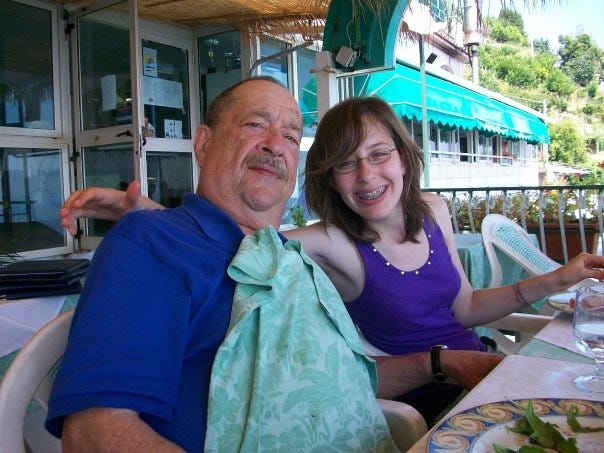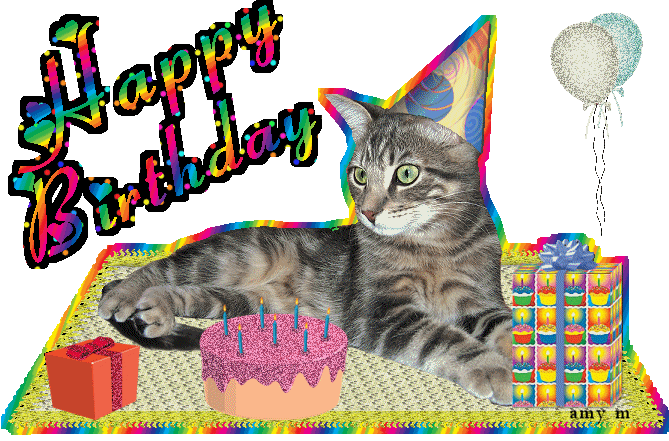What does Judaism say about birthdays?
Let the Jews eat birthday cake
📚 Join virtual book club next week on 11/16 to discuss As a Jew by Sarah Hurwitz!
When writing a Jewish blog, I often have to remind myself that I don’t have to write about every single Jewish thing that happens in the news. I will say, though, that this week has been emotionally difficult, and I only feel the divide among my fellow Jews widening.
I also reeeally don’t like being gaslit since history has shown us what happens to Jewish safety when anti-Zionist ideology comes to power. Oh yeah, and I saw a Swastika on my way to work again.
In an effort to find some semblance of control, I want to focus on something positive, and that is the joyous occasion of a birthday.
We’re midway through the month of Cheshvan. The name of this month often has a “mar” in front of it for “bitter,” because there are no holidays and it’s when our matriarch, Rachel, died.
But this month isn’t all that bitter, because next week marks the birthdays of two very special people in my life! Give it up for my baby niece, and The Primary Steakholder in My Heart, Phil (another excellent nickname suggestion from ChatGPT but I switched up the spelling since he loves steak)! 🥳👏
They have a lot in common: They both enjoy music, swimming, and mangoes. And I love them both very much!
I’ll be honest. I didn’t have a Drop topic for this week until yesterday morning, when Phil suggested I write about how Judaism views birthdays. I wasn’t excited by the idea, so I was just going to write a continuation of my (almost) annual Jewish Gratitude List (check out part I and part II). But just like Phil’s and my niece’s height, I was coming up short (another thing they have in common!).
So I did some Jewish birthday research and was surprised by what I found. Thanks for the great idea, P. If you also have a bday in Cheshvan, this one’s for you!
Trivia time: Birthdays are only mentioned once in the Torah. Do you know whose? I’ll reveal the answer below this gif:
It’s Pharaoh’s!
“And it came to pass on the third day, Pharaoh’s birthday, that he made a feast for all his servants; and he lifted up the head of the chief butler and the head of the chief baker among his servants.” (Genesis 40:20)
I was quite surprised to learn this. What does it mean that the only birthday mentioned in the Torah is that of our oppressor? Someone seen as a symbol of self-worship, ego, and power? Keep this question in mind throughout this Drop, please. All will be revealed, I promise.
Pirkei Avot, Ethics of the Fathers, breaks birthdays down for different stages throughout one’s life:
“The age of five for the study of the Bible; then ten for the study of the Mishnah; 13 for the commandments; 15 for the study of Talmud; 18 for marriage; 20 for earning a living; 30 for power; 40 for understanding; 50 for giving advice; 60 for old age, 70 for grey hairs; 80 for special strength, 90 for bowed back; 100–it is as if he had died and passed away.” (Pirkei Avot 5:21)
A few comments: I know 13 is B’nei Mitzvah and all that, but if Judaism is so into symbolism, why not the age of 10 for the commandments, hmm?
Good to know 50 is the appropriate age for giving advice, so that the next time someone gives me unsolicited advice I’ll say sorry you’re in no position to do so; you’re only 48.
I don’t want to live in a world where 18 means marriage, but I DO want to live in a world in which 70 is when you get gray hairs!
In all seriousness, 80 is definitely a kind of special strength. I’ve heard from people in their 80s who have survived all kinds of hardships, from the Holocaust to overcoming personal losses, and still have the energy to keep going and tell their story. Like the time we almost killed my dad on his 80th birthday by forcing him to walk up steep Italian seaside cliffs under the blazing August sun. I’ve also met some of the strongest people on my volunteer trip in Israel this summer and they were in their 80s!
As for being in your 90s, while a bowed back is a common physical trait at this age, I found something a bit more uplifting in this d’var. The Hebrew in Pirkei Avot’s description is lashuach (“bent over”), which can also mean beaten down or disheartened, like ma tishtoch’chi from L’cha Dodi: “Why are you downcast?”
However, if you read it as lasuach (with a sin), it means “to converse.” 90 is not a time of decline but of storytelling and reflection, which tracks because my dad tells a lot of stories. Lasuach appears in the Torah when Isaac goes out lasuach basadeh (“to converse in the field”) before meeting Rebecca. The rabbis interpret this as prayer, teaching that ein sicha ela tefillah, that conversation itself can be prayer. (See, Dad, I told you that you pray!)
My last comment/question on this is: Whatever happened to living to 120? Does Pirkei Avot not respect Moses?

Just because birthdays aren’t explicitly mentioned in the Torah, doesn’t mean you can’t celebrate them! In typical rabbi fashion, rabbis encourage us to mark our special day by studying, reflecting, and giving tzedakah. Specifically, having an aliyah (being called to the Torah), reading psalms (including the psalm number associated with their new age), thanking G-d for giving us another year of life, and reflecting on the past year by asking ourselves: What have we accomplished? How have we helped others? How have we made the world a better place?
Which brings me back to my first question about why Pharaoh’s birthday is the only birthday mentioned in the Torah and what that means for Jews. Perhaps the rabbis have given us the answer. A birthday is meant to be a day of reflection and making the world a better place, and that the Torah shows us how NOT to treat a birthday, by making it all about us and control and power. Though presents and a massage are still fine, I say.
Devoting a single day to making the world a better place is going to be tough for my niece and Phil, since they already make the world better every single day of the year! Shoutout to his sisters who also share this special day with him, Ariella and Sharona.
Shabbat Shalom and Yom Huledet Sameach,





Brad Bergmann - Miranda is a talented journalist, I look forward to getting her articles on Jewish culture, history and learn new things about our religion after each Shabbat Drop. Her insights speak for us all. I'm fortunate to have met her, a great friend.
In Spain, I had read, there is or was a custom where people would give a yank on the earlobe of the person, with a yank for each year for the birthday. Please, dear one, do not try that with your father. You will lose my ear with all the pulling or exhaust yourself with the effort.